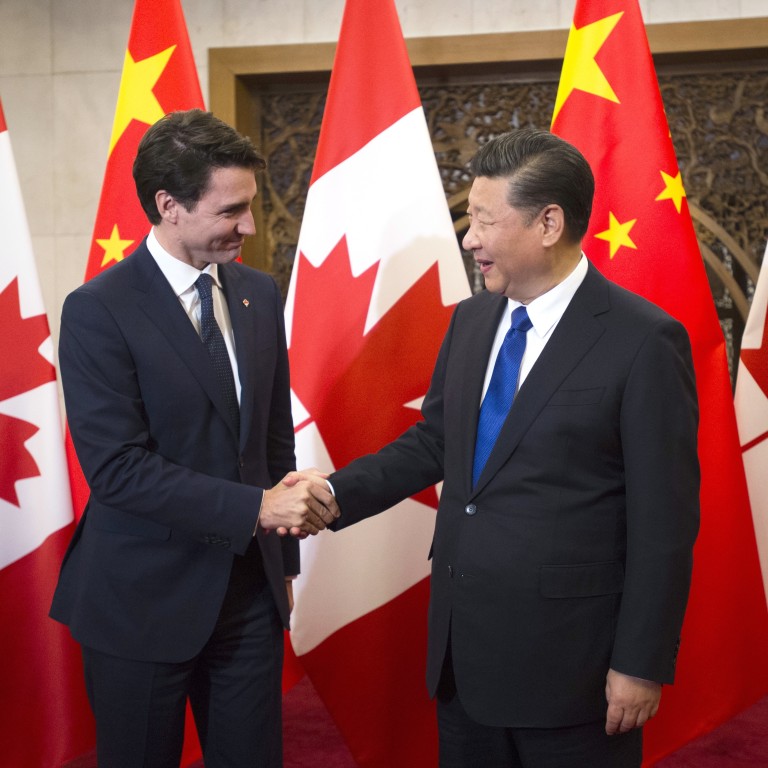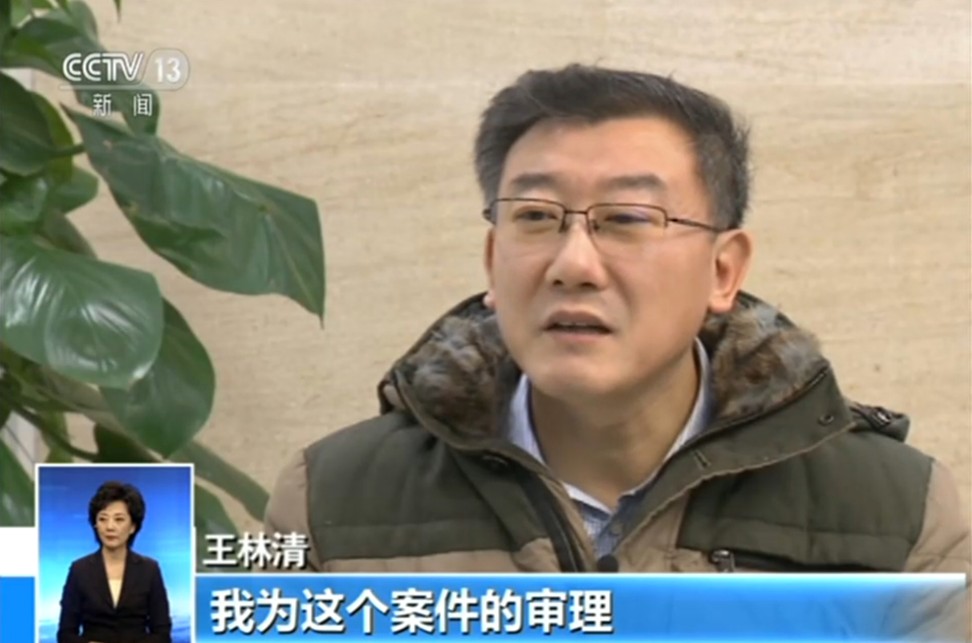
Meng Wanzhou’s case, Beijing’s response and two legal scandals highlight the ‘rule of law’, as preached – and practised – in Canada and China
- Amid the diplomatic row over the Huawei executive’s arrest and the two detained Canadians, Beijing and Ottawa are also being watched carefully around the world after strikingly different reactions to domestic law-related scandals
This vague but very serious accusation recently provoked Canadian Prime Minister Justin Trudeau to comment: “We are a country of the rule of law. We will ensure that rule of law is fully respected, and we will go through those processes in a proper and rigorous way. It is unfortunate that China continues to move forward on these arbitrary detentions.”
Kovrig and Spavor’s nightmare has become the dream of scholars of comparative law. Here is an opportunity to demonstrate before the entire world the open and dramatic clash not only between two opposing ideologies about the meaning of the “rule of law” but also between the different practical consequences for human dignity and freedom of these clashing views.
China and Canada each claim to be a country ruled by law, but Chinese President and Communist Party General Secretary Xi Jinping has instructed his country “to take the path of the rule of law that suits us, and ... not copy other countries’ models and practices. We must never follow the path of Western ‘constitutionalism’, ‘separation of powers’, and ‘judicial independence’.”
Chinese courts, he repeatedly tells the judges and the world, must follow the party’s absolute command.
What does this momentous debate over fundamental principles of governance – not between scholars but the leaders of two great countries – mean in practice?
Consider the plight of Kovrig and Spavor in China, already imprisoned incommunicado for three months, without access to lawyers, family or friends and awaiting a hearing before judges openly required to follow the party’s orders.
Compare the situation of Meng, released on bail, living in her own six-bedroom Vancouver mansion with full opportunity to roam the city daily until 11pm, albeit under surveillance, defended by Canada’s best lawyers and appearing before a judge struggling to prevent politics and publicity from distorting his country’s treasured reputation for judicial independence and fairness.
It is fascinating that both countries are at the same time also forced to deal with relevant scandals concerning the legal systems that are now themselves on trial before the world.
The female minister of justice/attorney general who was subjected to the prime minister’s pressures resisted those pressures and resigned in protest, as did another prominent woman member of the prime minister’s cabinet. Trudeau’s hold on power has been shaken.
The Chinese government, by contrast, has just effectively buried from public sight what was briefly a widely circulated and heatedly discussed claim on social media that Zhou Qiang, president of the nation’s judiciary, commanded his judges to favour a state-owned corporation over a private enterprise in a long and bitter contract dispute over ownership of extremely valuable coal mining rights.
Despite Xi’s frequent admonitions that the courts must always yield to the demands of the party, this claim shocked the Chinese public and promised to become the biggest judicial scandal in the PRC’s history.
But, after suppressing the story, the party belatedly assembled an ad hoc party-state investigation commission, with no court representation, that issued an explanation that met with substantial scepticism among China’s many able but necessarily mute legal experts, as well as the general public.
Also, the well-known CCTV host Cui Yongyuan, who had done much to broadcast Wang’s original claim of political interference with the courts, mysteriously disappeared, as did Zhao Faqi, the hapless owner of the private mining enterprise whose contract rights had been denied.
This complex saga, which is replete with bizarre tales of missing legal documents, leaked photocopies of evidence and malfunctioning court surveillance cameras, has the makings of a riveting movie.
These recent Canadian and Chinese developments raise the most significant questions about the meaning of “justice” as well as “government under law” in two very different societies. Given the slowness of legal proceedings in both countries, perhaps a 12-episode television documentary will be necessary instead of a movie.
But how will it end? As the poet Matthew Arnold once wrote: “Only the event will teach us in its hour”.
Jerome A. Cohen is a law professor at New York University, faculty director of its US-Asia Law Institute and adjunct senior fellow at the Council on Foreign Relations


